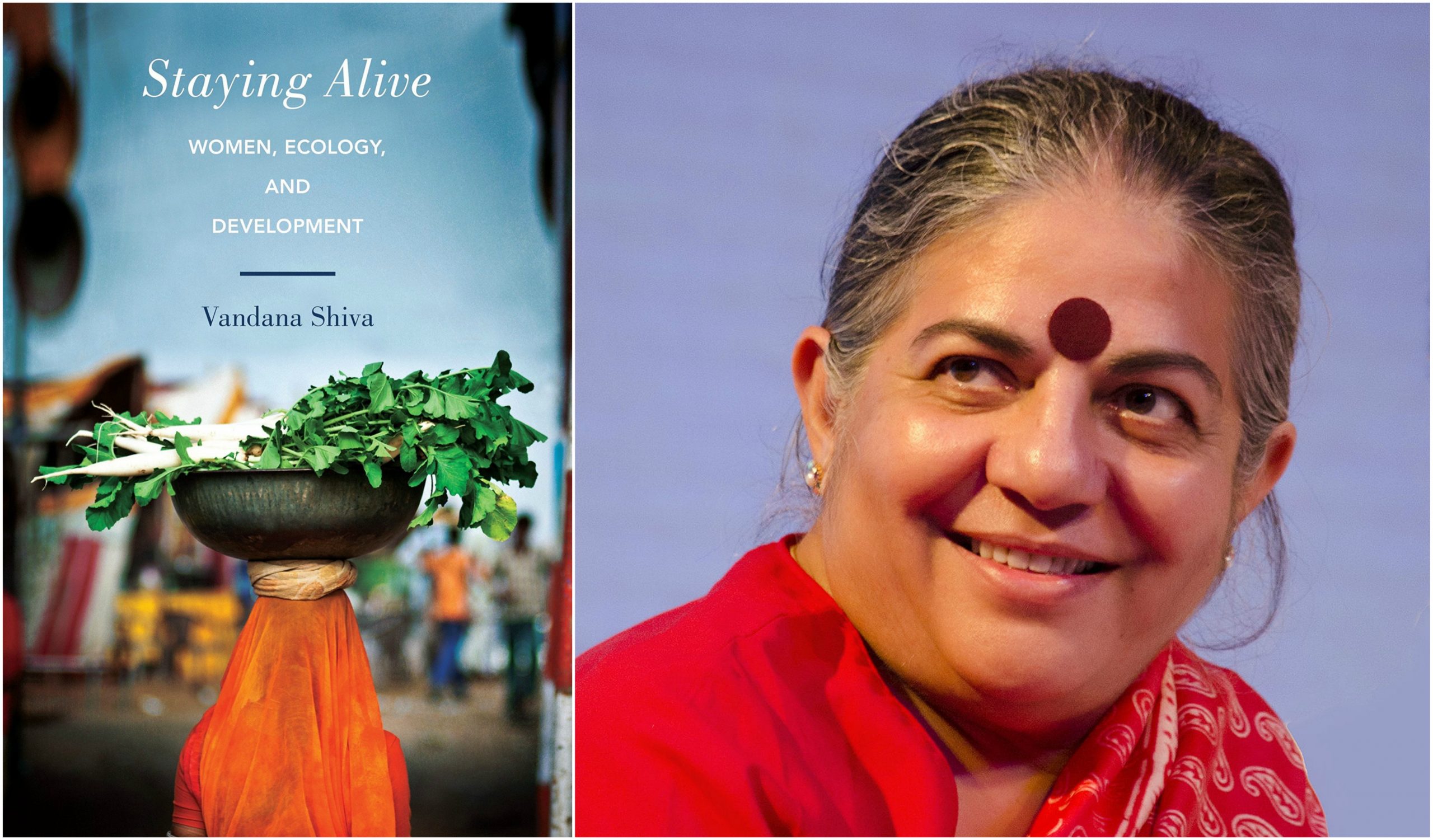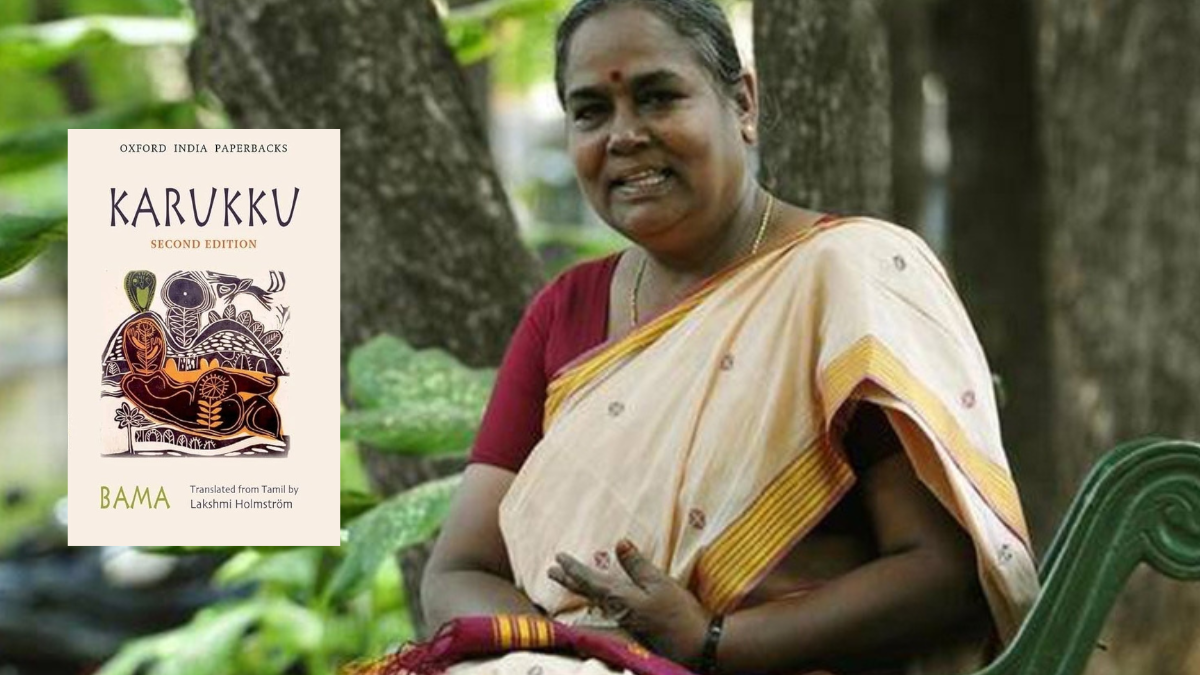“Staying Alive: Women, Ecology, and Development” written by Vandana Shiva, encompasses the understanding of ‘eco-feminism’ and talks about how, for a long time, male-stream knowledge has discredited and overlooked underlying feminist interpretations of existing models of ‘development’. This book plays an important role in providing an insight on the overlooked consequences of development and its relationship with ecology.
Staying Alive: Women. Ecology, and Development
Author: Vandana Shiva
Publication: South End Press; 10/31/10 edition (October 1, 2010)
Genre: Non-Fiction

In this book, the author articulated how the experiences of rural women embedded in nature are impacted by the constant ‘desire’ for ‘development’. She addressed that, following colonisation, the discourse which has dominated the ‘model of progress’ is of ‘development’. She identified such a western model, as ‘patriarchy’s vision’ of exploitation and subordination. The process of colonisation has impacted the rights of locals living in forest and led to their displacement.
The author throws light upon various dichotomies which has often raised questions in our minds as development practitioners. She elaborates upon how the dichotomy of productivity and un-productivity have been identified in association with changes in society. She further talks about how they have been perceived through the lens of gender. She emphasised on how the technocratic approach of change has eventually contributed to ‘mal-development’ which is synonymous with women’s underdevelopment and environmental degradation.
She emphasised on how the technocratic approach of change has eventually contributed to ‘mal-development’ which is synonymous with women’s underdevelopment and environmental degradation.
In Staying Alive: Women, Ecology, and Development, the author also dealt with the ‘nature vs culture’ debate (Ortner 1974). She addressed on how in the name of development, the control of nature (femininity) by the culture (masculinity) has been justified, which thereby affects other social patterns and relationships including human beings and ecology. Shiva has strictly criticised the reductionist approach of development which has resulted in centralisation of control in the hands of patriarchy. She has detailed the hypocrisy of modern science and identified it as a project of patriarchy.
The apolitical approach of modern science in real sense is characterised by polarised and discriminatory practices, and contributed to the undermining of broader political consensus. She highlighted on the importance of radical shift required for the recovery of feminine principles. In this regard, it is important to highlight one of the important arguments put forward by Shiva—the feminine principles of ‘Prakriti’. Her argument asserts that even though we have viewed the shift from tradition to modernity as a shift from superstition to rationality, but in reality it has degraded the various processes adopted by women for ‘the production and preservation of sustenance’ (Shiva 1988) of ecology. The relationship between ‘Shakti’ and ‘Prakriti’ has resulted into manifestations of various socio-political and ecological movements.

In Staying Alive: Women. Ecology, and Development, the author elaborated on various roles taken up by women in sustaining the ecology which has constantly been overlooked by male-stream understanding of various disciplines. The technocratic approach of modern science and the research conducted in this field are facilitating such discrimination. The debate around tradition and modernity where the discourse of development has prioritised latter, has led to the degradation of indigenous form of values and knowledge which played an important role in sustaining the relationship between ecology and mankind for a prolonged period.
Also read: We Can’t Talk About The Environment Without Talking About Indigenous People’s Rights
She argued that, forest as a sphere was formerly managed by women. But the colonisation has resulted in ‘forest denudation’ (Shiva 1988). She argued how colonization by reducing the identity of forest to commercial economy has paved the way for the displacement of local rights, local needs and local knowledge. Forest has been an important medium for providing, critical inputs of food and livelihood. In this regard, it is thereby important to highlight various social movements headed by women as they have been the most affected and marginalised community.
Shiva emphasises upon the importance of these movements, as she identifies them as an important medium for recovering ecological principles and also for the implementation of various policies that would eventually help to get over this tragedy.
She has identified this new industrialist materialist standpoint of forestry as ‘reductionist masculinist forestry’ (Shiva 1998). Shiva emphasises upon the importance of these movements, as she identifies them as an important medium for recovering ecological principles and also for the implementation of various policies that would eventually help to get over this tragedy. She also insists that the ethno-botanical work amongst the tribes can be identified as their accessibility to indigenous and traditional forms of knowledge but these are left unnoticed. Shiva has also provided examples in her book to reach such a conclusion. It is important to highlight how beautifully she has managed to throw light upon the major ecological catastrophe we have been witnessing and how, as a result of unequal distribution of resources, certain communities are marginalised.
She believes that the sustainable mode of food production in the forest are facilitated by women. But their knowledge has been completely overlooked with the emergence of commercial forestry. On the one hand, they are alienated from their indigenous source of knowledge, livelihood and resources and on the other hand, the resources of the forest eco-system have been diminished into commodity and cash relations and thereby destructing the integrity of forest eco-system.
Criticisms And Conclusion
However, the book has received criticisms in a certain sense. Though many have addressed the radical nature of eco-feminism highlighted in the book, it is important to understand that it was for a long time that feminist interpretations have been overlooked in our understanding of politics of ecology. This book has played an important role in starting a conversation around biases of development discourse, modern science and gender discrimination and their consequences. But it is also important to highlight, how this book has universalised the experience of rural and tribal women in third world countries.
Three major criticisms put forward by Bina Agarwal also comprises the understanding of how Staying Alive: Women, Ecology, and Development, failed to take into consideration the intersectionality of caste, class, religion, race, ecological zone and other socio-political positions. It is also important to argue, that though this book tried to look into the destructive consequences of development and modern science but it did not elaborate largely upon what were the conditions prior to this era. As argued by Agarwal, Shiva misses out the very local forces of power and property relations that also contributed in the domination, subordination and marginalisation of rural women embedded in nature (Agarwal 1998).
It is also important to address the criticism of how her idea of social relationship between feminine principles and nature relates to the discourse of Hinduism. The repetition of various points in Staying Alive: Women, Ecology, and Development has also developed a sense of monotony. In spite of these criticisms, it is significant to address how this book plays an important role to develop an understanding around how the material realities play an important role in administrating the social relationship between ecology and women.
Also read: Greenwashing: When Brands Pretend To Care About The Environment
References
- The Gender and Environment Debate: Lessons from India by Bina Agarwal
- Is Female to male Nature is to Culture? by Sherry Ortner
- Lethal Statistics by DiPerna Paula
About the author(s)
Joyoti Chowdhury is a Sociology Student with the hope of emancipation to create an egalitarian reality.




